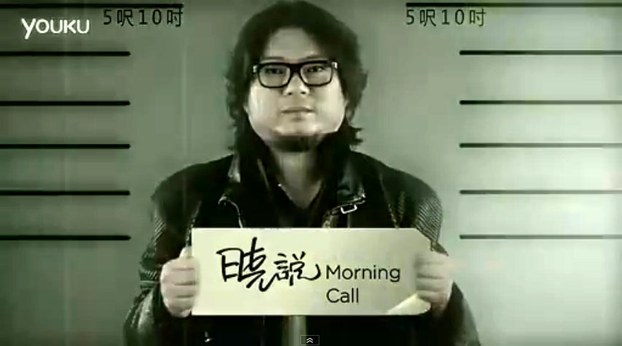Ethnic Mongolian netizens in China have slammed a popular Chinese talk show host for comments suggesting their ancestors were “uncivilized illiterates,” prompting him to make a public apology, a rights group said Wednesday.
Gao Xiaosong had made the disparaging remarks recently on his online video talk show “Xiao Shuo” (Morning Call), eliciting a hail of angry responses by ethnic Mongolians on Chinese social media sites, according to U.S.-based Southern Mongolian Human Rights Information Center (SMHRIC).
“When elaborating on place names in Beijing, Gao Xiaosong stated that ‘Beijing was first built by a group of uncivilized illiterates including the Manchus and the Mongols who conquered the world on horseback’,” SMHRIC said.
Gao Xiaosong had made the disparaging remarks recently on his online video talk show “Xiao Shuo” (Morning Call), eliciting a hail of angry responses by ethnic Mongolians on Chinese social media sites, according to U.S.-based Southern Mongolian Human Rights Information Center (SMHRIC).
“When elaborating on place names in Beijing, Gao Xiaosong stated that ‘Beijing was first built by a group of uncivilized illiterates including the Manchus and the Mongols who conquered the world on horseback’,” SMHRIC said.
Gao, who is a Chinese-American musician and composer, said that the Mongols “were illiterate and even unable to speak Chinese fluently” and that the names they had given to places in Beijing were awkward and unauthentic.
Beijing was designed and built by the Mongols as one of several capitals of the Mongol Empire in the 13th century during the Yuan Dynasty.
Most of China’s ethnic Mongolians today live in Inner Mongolian Autonomous Region and have long complained that their traditional grazing lands have been ruined by mining and desertification, and that the government has marginalized their culture and language.
SMHRIC said that Gao’s comments were found to be “both insulting and disrespectful” and led Mongolian netizens to take to Twitter-like service Sina Weibo, YouTube equivalent YouKu, and websites Ren Ren and Baidu to post strongly-worded messages demanding Gao make a public apology.
“Full of national hatred and ethnic discrimination, his statements not only insulted the national dignity of the Mongolians but also created an extremely vicious social effect,” netizen Araashdorjee posted on his microblog.
He also called on “Mongols from all walks of society to join together to defend their national dignity” and “give Gao Xiaosong a maximum punishment through legal means.”
Other responses suggested filing a lawsuit against Gao in accordance with provisions under the Chinese Criminal Law which state that individuals who “instigate national hatred and advocate national discrimination” shall be “punishable to three to 10 years imprisonment” depending on the severity and nature of the act.
Apology posted
In response to the deluge of criticism, Gao took to his microblog account to issue an apology.
“I apologize! The Mongols who conquered China at that time were very civilized, very modern, and were never unpolished,” Gao wrote to his Mongolian detractors.
But Gao also attempted to deflect blame, saying that “many articles claim the Mongols killed, enslaved and raped the Chinese,” referring to publications that celebrated Chinese heroes who resisted the Mongols and fought against the Yuan Dynasty.
He pled for an end to the barrage of criticism, saying “Mongolians are open-minded forgiving people—not like us narrow-minded Chinese.”
Heated discussions over Gao’s comments also extended to the ethnic Mongolian online community abroad on platforms including Facebook and Twitter, SMHRIC said.
“The illusion of so-called ‘ethnic harmony’ [in China] has long disappeared,” the group quoted a netizen named “Voice of Southern Mongolia” as saying on Facebook, “and Gao Xiaosong correctly admitted that the Mongols are foreigners and the national border between the Mongols and Chinese is the Great Wall.”
“The Chinese Government distorts history and eradicates national education,” the netizen continued. “In fact what Gao Xiaosong said is an expression of the deep-rooted attitude of all Chinese toward the Mongolians: discrimination.”

No comments:
Post a Comment